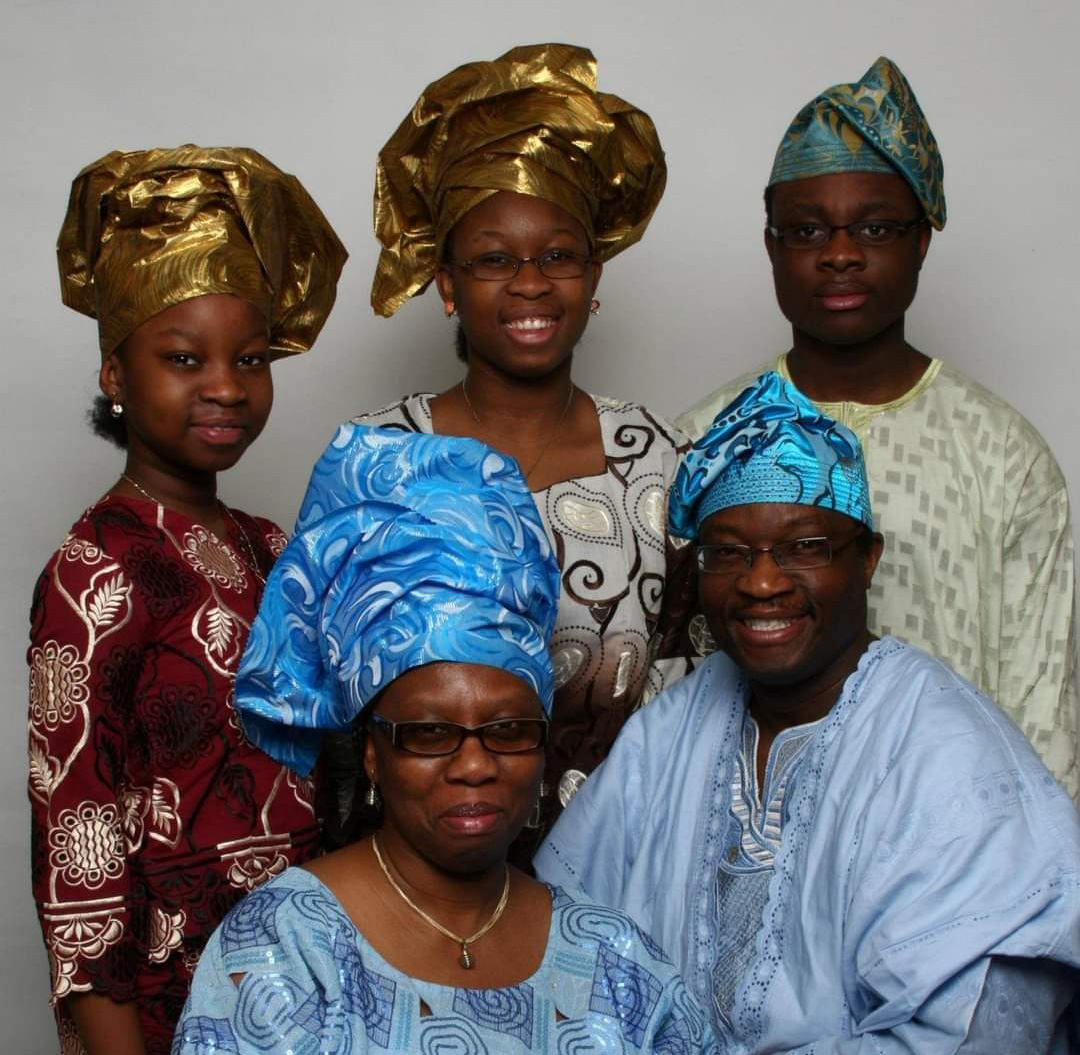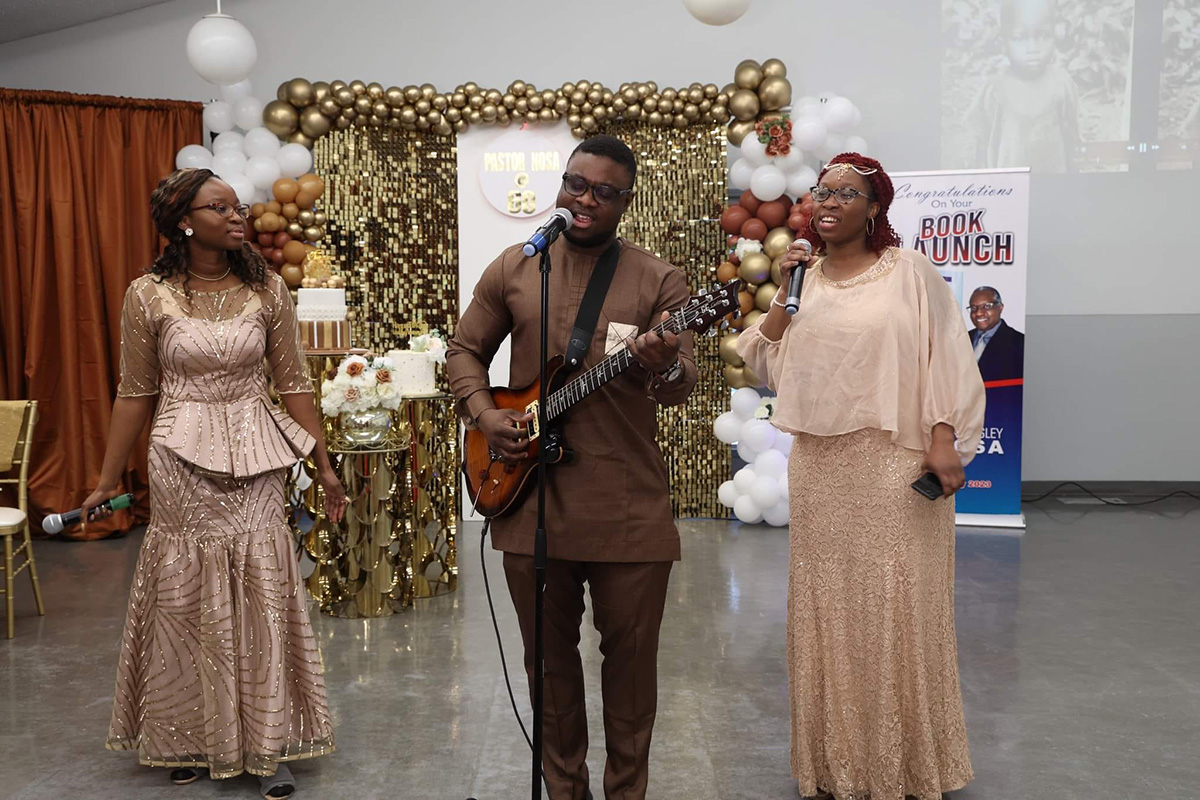Black History Month: This is me, Oghosa
Last updated onDuring the month of February, we recognize Black History Month. It’s a time to celebrate the remarkable history, culture and achievements of the Black community, as well as recognize the challenges they have faced over the course of centuries.
This year, Oghosa Idahosa, a member of our Employee Inclusion Network, Ujima, shares his story.
Meet Oghosa
My name is Oghosa, and I started at TC Energy as an intern in 2021 and am now a civil engineer-in-training based in Calgary.
My family moved to Calgary from Nigeria when I was 13 years old as my father wanted to provide better opportunities for me and my two younger sisters. We are a tight-knit and supportive family. My strong-willed, intellectual father and compassionate mother have both played significant roles in shaping who I am today.

Family portrait with Oghosa’s parents and two younger sisters.
One of those characteristics that they nurtured is my endless curiosity and desire to understand the world around me.
When I was young, this meant learning how to play the drums at the age of three. I then picked up the piano, guitar, bass, saxophone and trumpet. I also discovered a love for singing! As a musician living in North America, my passion for music is a vital connection to my Nigerian roots, as American music is deeply rooted in Black music.

Oghosa puts his musical skills to use at his church every Sunday.
Understanding Black history
However, it wasn’t until I was a teenager that I began my deep dive and interest into understanding Black history. I read Martin Luther King Jr.’s letter written during his time in jail, which opened my eyes to the struggles my ancestors faced. I also started reflecting on the root cause of these struggles – yes, a group of people told themselves a story of superiority over another group of people – but it was also due to broken systems, and people clinging to familiarity and inertia. This understanding gives me hope because we can change broken systems – but we need to educate ourselves and honour Black history beyond just this month for that to be possible.
Last year, my grandmother in Nigeria passed away. When she died, a treasury of stories and lessons were lost, and an essential connection to my family history is now forever gone. It reminded me of Ernest Hemingway’s famous quote: “Every man has two deaths: when he is buried in the ground and the last time someone says his name.” It’s beautiful and it’s melancholic at the same time. When it comes to my family history – Black history – my goal is to postpone that second death for as long as possible and to let the memories linger.
In the same way, I believe the key to changing systemic bias lies in preserving the memories of our Black roots and understanding the history that brought us here. By reminding ourselves and each other of our individual and collective histories, we can alter the systems that govern us.
Now, as a member of TC Energy’s newest Employee Inclusion Network, Ujima, which focuses on the Black community and our allies, I help plan events, participate in speaking engagements and spread awareness. This is part of my fight against that second death – a fight to keep the history of the Black community alive and remembered, so that our rich legacy continues to positively influence not only the present but also the future.
I’m excited to see positive movement happening – that we are working towards a diversity of thought in every room and illuminating paths that may have previously seemed inaccessible to certain groups.
You might also be interested in
- Black History Month 2023: This is me, Marlon
- 10 ways you can celebrate and learn during Black History Month
- Employee Inclusion Networks